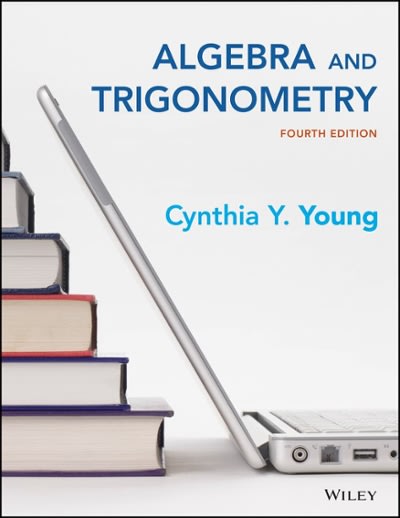Question
Question Set 1. Visual Representations Complete the following table with the appropriate visual representations covered in Lesson 2 and Lesson 3. The first row is
Question Set 1. Visual Representations
Complete the following table with the appropriate visual representations covered in Lesson 2 and Lesson 3. The first row is completed as an example. [30 points]
Variable Type(s)
Visual Representations
One categorical
Frequency table, bar chart, pie chart
Two categorical List at least 2
Two-way table, segmented bar chart
One quantitative List at least 3
Dot plot, histogram, boxplot
Two quantitative List at least 1
Scatterplot
Three quantitative List at least 1
Scatterplot with groups
One quantitative & one categorical List at least 2
Side-by-side boxplot, dot plots with groups.
Two quantitative & one categorical List at least 1
Scatterplot with groups.
**On the exams you are permitted to have one page of notes. This table should be on that page!
Question Set 2. Height
This question uses the HeightData.MTW file from the third edition of the Lock5 textbook. These data were collected from a sample of 93 people. Their height, in centimeters, was measured at 31 different time points between the age of 1 year and 18 years. [70 points; 5 points each]
A. Construct a histogram for the Year_1 variable.
B. Construct a boxplot for the Year_1 variable.
C. Describe the shape of the distribution of the Year_1 variable using statistical terminology.
D. If you were presenting these data (e.g., conference presentation, presentation to coworkers), would you use the histogram or boxplot? Explain why. There are many possible correct answers.
E. Construct side-by-side boxplots to compare the Year_1 variable by Sex.
F. Construct side-by-side boxplots to compare the Year_18 variable by Sex.
G. Compare your side-by-side boxplots for Year_1 and Year_18. Do the heights of females and males appear to be more similar or more different as they get older? Explain how you used your side-by-side boxplots to determine this. In other words, explain what you were looking for in the graphs.
H. Construct a simple scatterplot with Year_1 on the x axis and Year_18 on the y axis.
I. Describe the relationship between Year_1 and Year_18. Be sure to mention the direction, form, strength, and outliers.
J. Compute the correlation between Year_1 and Year_18. Clearly identify your final answer by either highlighting or circling it on the output or writing a sentence (e.g., "Pearson's r is XXX").
K. This is the regression model using Year_1 to predict Year_18:
Identify and interpret the slope.
L. Identify and interpret the y-intercept in the regression model that uses Year_1 to predict Year_18 shown in part K.
M. Construct a scatterplot with groups with Year_1 on the x axis, Year_18 on the y axis, and Sex as the grouping variable.
N. Describe the relationship between Year_1, Year_18, and Sex. Be sure to mention all three variables.
Step by Step Solution
There are 3 Steps involved in it
Step: 1

Get Instant Access to Expert-Tailored Solutions
See step-by-step solutions with expert insights and AI powered tools for academic success
Step: 2

Step: 3

Ace Your Homework with AI
Get the answers you need in no time with our AI-driven, step-by-step assistance
Get Started


